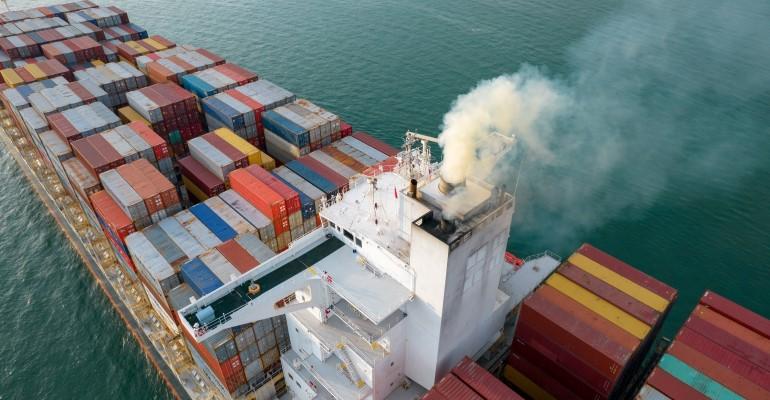The freight analytics consultancy has revealed that its CEI, which measures emissions per tonne of cargo shipped across 13 key trades, hit a high of 104.7 over the first quarter of the year.
Worst hit were trade lanes from the Far East to the Mediterranean where the CEI shot up by 63% over the first three months, year-on-year. Xeneta’s analysis reveals that containers transported on this trade via the Cape of Good Hope were taken an extra 5,800 nautical miles on average.
Emily Stausbøll, a Xeneta analyst, noted that it’s not only an issue of distance. Ships are sailing at higher speeds to make up for lost time, she said. The speed-power curve means that fuel-burn and emissions rise exponentially as ships sail faster.
Xeneta data demonstrates that cargo owners and shippers are adopting new options. Air cargo demand from Dubai Airport to European destinations, for example, rose by 190% in March, compared with the same month last year.
“Not only is air freight more expensive than ocean freight, it is also far less sustainable,” Stausbøll declared. “So, the shift to hybrid sea-air services via the Middle East will result in increased carbon emission per tonne of cargo transported.”
There are also significant implications for ocean freight costs. Ships bound for ports in the European Economic Area will incur substantially higher EU Emissions Trading System costs for longer Cape voyages. This will have a significant impact on supply chains and ultimately raw material costs, manufactured goods, and retail inflation across the bloc.
Carriers will do that they can to pass these costs on to businesses shipping the goods, whether that is through increasing ocean freight shipping rates or additional surcharges, Stausbøll said.
“Either way, there is a financial price to pay ... ocean freight container shipping is only one sector, but this clearly demonstrates the massive impact war can have on carbon emissions and the climate.”
Copyright © 2024. All rights reserved. Seatrade, a trading name of Informa Markets (UK) Limited.
Add Seatrade Maritime News to your Google News feed.  |
